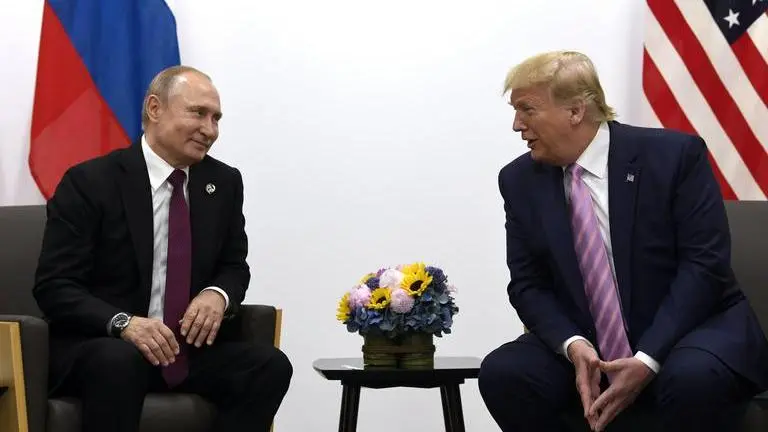Updated 20 June 2020 at 13:15 IST
US and Russian envoys to discuss new arms control treaty, invitation sent to China
US Special Presidential Envoy Marshall Billingslea will travel to Austria to meet with Russian Deputy Foreign Minister Sergey Ryabkov to discuss New START deal.
- World News
- 2 min read

The United States Special Presidential Envoy Marshall Billingslea will travel to Austria on June 22-23 to meet with Russian Deputy Foreign Minister Sergey Ryabkov and discuss the mutually agreed topics related to the future of arms control. According to the United States Department of State, Washington has also extended an open invitation to the People's Republic of China to join the discussions over the need for all three countries to pursue arms control. According to reports, China has thus far, rejected the United States' proposal to join the meeting and be part of the deal.
Media reports suggest that US administration officials insist on bringing China into the new arms control pact because of the growing threat posed by its nuclear arsenal, that the country is currently modernising. Some arms experts also suggest that the move by Trump administration to call for the inclusion of China into the new arms pact is a strategy to kill the START treaty and end restraints on US arms deployment.
Advertisement
The United States wants all three countries to reach an agreement on future nuclear arms control before the current New START deal between Moscow and Washington expires. The New START deal which is also known as New Strategic Arms Reduction Treaty was signed between the United States and the Russian Federation on April 8, 2010, in Prague and after ratification, entered into force on February 5, 2011. The treaty is set to expire in February 2021.
Advertisement
New START treaty
The New START treaty limits the number of nuclear warheads deployed by both Russia and the United States to 1,550. The treaty also restricts the number of intercontinental ballistic missile (ICBM) launchers, submarine-launched ballistic missile (SLBM) launchers, and heavy bombers that can carry nuclear warheads at the time of any potential war. New START replaced the Treaty of Moscow (SORT) that was in force from June 2003 to February 2011. Strategic Offensive Reductions (SORT) was set to expire in December 2012.
(Image Credit: AP)
Published By : Vishal Tiwari
Published On: 20 June 2020 at 13:15 IST
